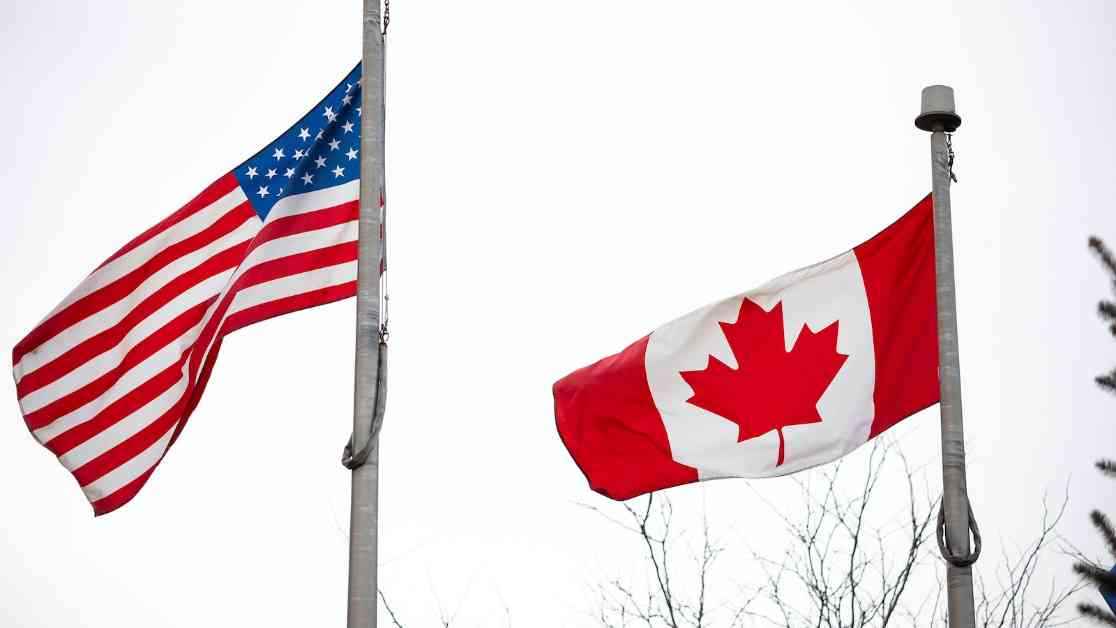China and US on The Brink of War Amid Tariffs Dispute
President Donald Trump is once again at the center of a contentious international dispute, this time criticizing Canada for allegedly failing to address drug trafficking that has fueled the ongoing opioid crisis in the United States. Trump has imposed tariffs on goods from Canada and Mexico, as well as 10% tariffs on imports from China. The escalating tensions have prompted China to warn of readiness for any “type of war” with the United States. What has led to this brink of conflict and what implications does it hold for global trade and relations?
Trump’s Critique of Canada and Mexico
In a recent statement, President Trump expressed disappointment in Canada’s response to the issue of drug trafficking, particularly the flow of fentanyl into the United States. Despite assurances from Canadian Prime Minister Justin Trudeau that the situation had improved, Trump insisted that more decisive action was necessary. The call between the two leaders ended on a less than amicable note, reflecting the strain in their bilateral relationship.
The President also pointed fingers at Mexico, alleging that illicit drugs such as fentanyl were continuing to enter the US through its southern border. These accusations have fueled the imposition of tariffs by the Trump administration, raising tensions with both Canada and Mexico. The ripple effects of these actions are being felt not only across North America but also in the wider context of global trade dynamics.
Chinese Response and Threat of War
China’s swift response to the US tariffs has added a new layer of complexity to the situation. The Chinese government issued a stern warning, indicating its readiness for any form of conflict with the United States. The tit-for-tat escalation of tariffs between the two economic powerhouses has raised concerns about the potential for a full-blown trade war, with far-reaching consequences for businesses and consumers on both sides.
The Chinese spokesperson’s statement underscored the need for dialogue and mutual respect in resolving trade disputes. However, the looming threat of war, whether in the form of tariffs or other means, hangs ominously over the international community. The imposition of additional tariffs by China on key US exports reflects a strategic move to exert pressure on the Trump administration and leverage the support of American farmers, a key constituency for the President.
The implications of these escalating tensions extend beyond economic considerations to geopolitical and security concerns. The specter of a protracted trade war between the US and China, with potential spillover effects on other countries, raises questions about the stability of the global economy and the efficacy of diplomatic channels in resolving disputes. As the world watches the developments unfold, the stakes are high, and the need for de-escalation and dialogue is more urgent than ever.
The recent events involving the US, China, Canada, and Mexico highlight the interconnected nature of the modern global economy and the fragility of diplomatic relations in an increasingly volatile geopolitical landscape. The fate of millions of people and the prosperity of nations hang in the balance as leaders navigate the treacherous waters of trade disputes and political posturing. The path forward remains uncertain, but one thing is clear: the world is watching, and the decisions made today will have far-reaching consequences for generations to come.


